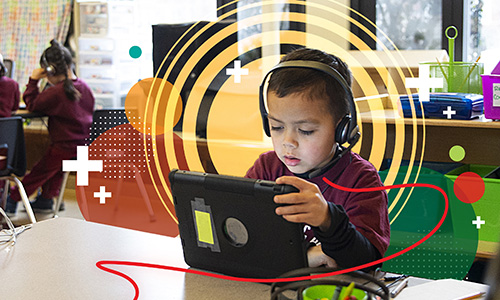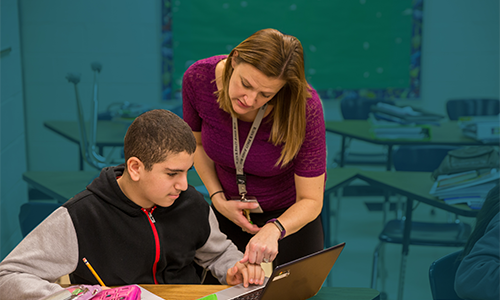Media mention
Can test metadata help schools measure social-emotional learning?
2019
Consortium for Policy Research in Education Knowledge Hub podcast

Description
Social-emotional learning (SEL) competencies like self-efficacy and conscientiousness can be predictive of long-term academic achievement. But they can also be difficult to measure. In a new study led by NWEA’s James Soland, researchers investigated whether assessment metadata – the way students approach tests and surveys – can provide useful SEL data to schools and educators. Soland joins CPRE research specialist Tesla DuBois to discuss his findings, their implications, and the promise and limitations of student metadata in general.
See MoreRelated Topics


MAP Reading Fluency with Coach Evidence Base
This document provides an overview of the research underlying MAP Reading Fluency with Coach’s AI-powered intelligent reading tutor and the research on key elements of early literacy instruction. It describes the components of the MAP Reading Fluency with Coach pedagogy and the research base supporting each component.
By: Amy Endo
Products: MAP Reading Fluency
Topics: Early learning, Empowering educators, Innovations in reporting & assessment, Reading & language arts


Exploring the educational impacts of COVID-19
This visualization was developed to provide state-level insights into how students performed on MAP Growth in the 2020–2021 school year. Assessments are one indicator, among many, of the student impact from COVID-19. Our goal with this tool is to create visible data that informs academic recovery efforts that will be necessary in the 2022 school year and beyond.
By: Greg King
Topics: COVID-19 & schools, Innovations in reporting & assessment


Executive Summary: Content proximity spring 2022 pilot study
This executive summary outlines results from the Content Proximity spring 2022 pilot study, including information on the validity, reliability, and test score comparability of MAP Growth assessments that leverage this new item-selection algorithm.
By: Patrick Meyer, Ann Hu, Xueming (Sylvia) Li
Products: MAP Growth
Topics: Computer adaptive testing, Innovations in reporting & assessment, Test design


Content Proximity Spring 2022 Pilot Study Research Report
The purpose of this research report is to provide detailed information about updates to the MAP Growth item-selection algorithm. This brief includes results from the Content Proximity pilot study, including information on the validity, reliability, and test score comparability of MAP Growth assessments that leverage this new item-selection algorithm.
By: Patrick Meyer, Ann Hu, Xueming (Sylvia) Li
Products: MAP Growth
Topics: Computer adaptive testing, Innovations in reporting & assessment, Test design


This study compared the test taking disengagement of students taking a remotely administered an adaptive interim assessment in spring 2020 with their disengagement on the assessment administered in-school during fall 2019.
By: Steven Wise, Megan Kuhfeld, John Cronin
Topics: Equity, Innovations in reporting & assessment, School & test engagement


This study evaluates the effects of asking items throughout the passage (i.e., embedding items) to achieve a more precise measure of reading comprehension by removing barriers for students to demonstrate their understanding. Results showed a significant impact of embedding comprehension items within reading passages on the measurement of student achievement in comparison to answering items at the end of the passage.
By: Meg Guerreiro, Janice Johnson
Topics: Equity, Innovations in reporting & assessment, Reading & language arts


This study examined the stability of social-emotional learning (SEL) skills and the extent to which students’ initial level in SEL skills in 6th grade and growth in SEL skills from 6th to 8th grade are related to students’ successful transition to secondary school. Findings suggest that understanding how a student develops social-emotionally can improve identification of students not on track to succeed in high school.
By: James Soland, Megan Kuhfeld
Topics: Social-emotional learning, High school, Middle school


